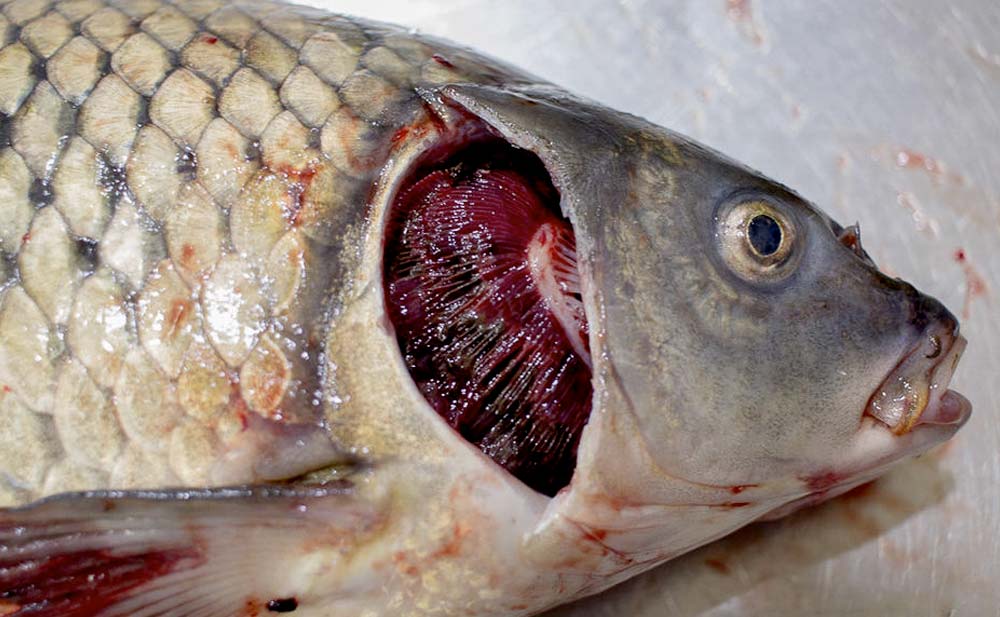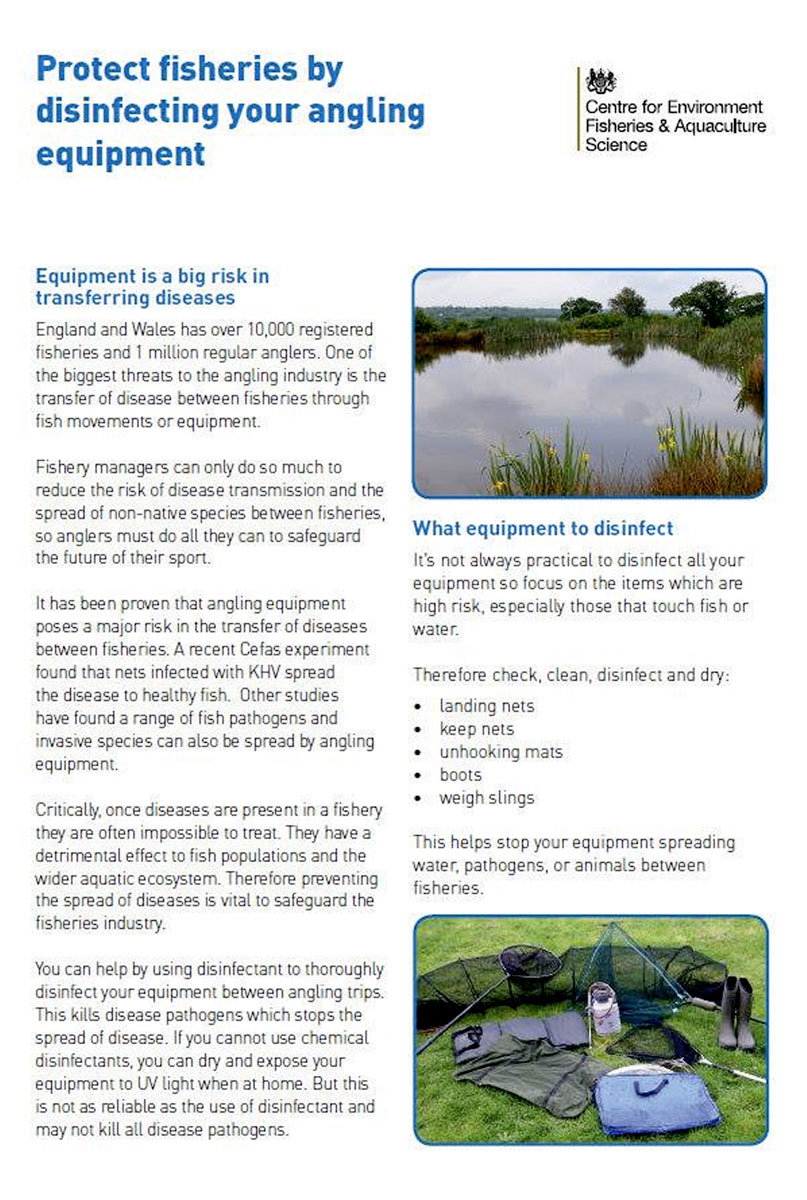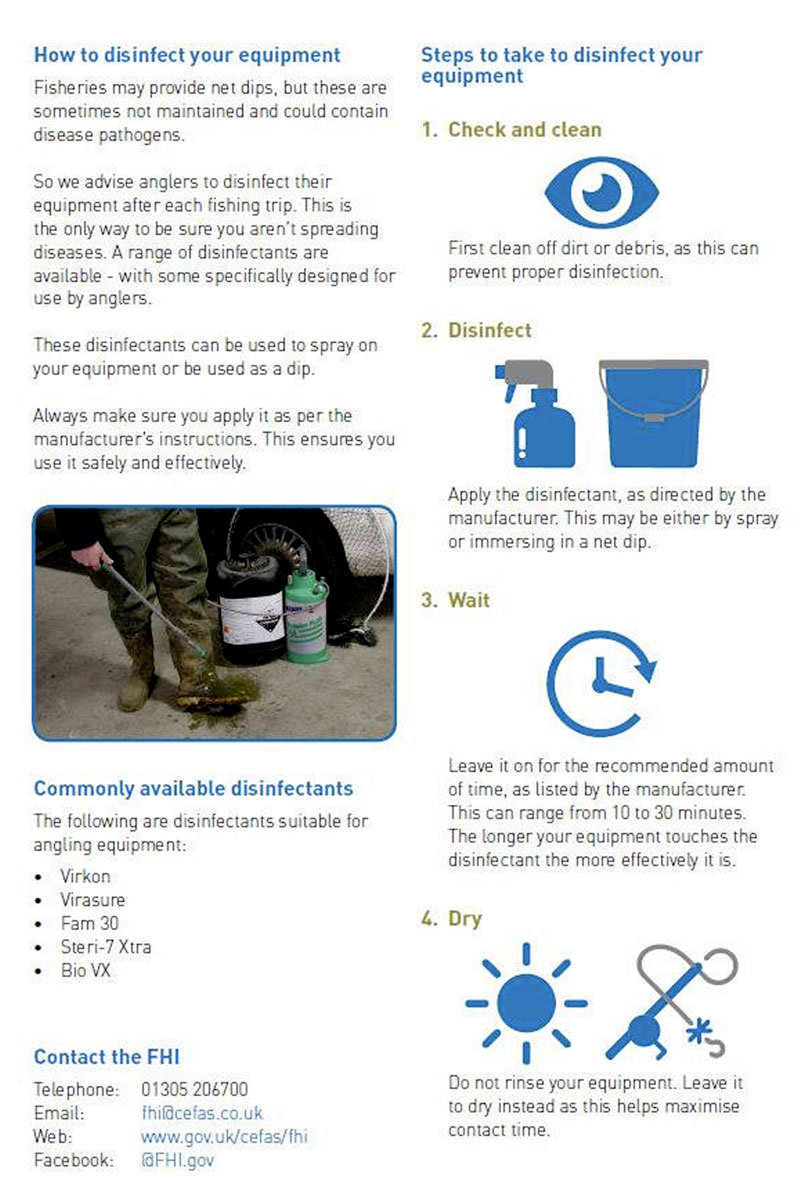Protecting Fisheries
How we can all help...By virtue of the fact that we travel between fisheries when touring, maybe several on a trip, we all potentially risk spreading disease from one fishery to another.
Many fisheries have taken precautions to try and protect their lakes, the odd one or two don’t. So if we all take care by ensuring we follow guidelines provided by fisheries regarding dipping and drying our nets and unhooking mats etc, and ensure that ours are all dry and hopefully disease free before leaving each venue, we can help reduce the risk of both tranferring disease and alien species of a variety of sorts from one fishery to the next.
The following is some useful guidance and reading the documents posted below, hopefully we as thoughtful and caring Touring Anglers can do our utmost to prevent the spread of disease etc.
KHV – The Koi herpevirus
Here are a few facts about this disease which may help some of you in understanding the concerns of Clubs and fishery owners, and some of the things we as anglers can do to limit its spread.
- KHV affects only king carp, it does include ghost and koi carp, but not crucian carp
- The disease occurs when water temperatures exceed 16 degrees. It is highly contagious and may cause 100% mortality.
- The disease is transmitted primarily by fish to fish, or contaminated angling equipment.
- There is NO treatment for KHV.
KHV is recognisable by certain factors:
- Is it summer and water temperature exceeding 16 degrees?
- Is it mainly carp dying?
- Are the fish very lethargic in their movements, and gathering around aerators and inlets?
- Are the eyes of the fish sunken in?
- Is there mucus on the fish, especially around the gill area which may display tissue damage ?
- Report any cases if the answer is yes to the above
What can we do as anglers to limit the spread?
- DO NOT move fish from one fishery to another, or from your pond/tank into a fishery.
- Ensure all unhooking equipment such as nets slings and mats are washed and completely dry. The equipment should be exposed to UV rays from the sun, as this will kill any bacteria present. Please be mindful that replacing the net or sling into a stink bag that is wet, just defeats the point of washing the net and will contaminate it again.
- Use dips if provided, but please keep the net in the dip for around 15 minutes.
- Please keep footwear clean between trips as this can spread the disease from one fishery to another.
- Help us keep our fisheries clean and secure your future fishing




